Imagining Ryan in Berlin
FMcG German, British and Irish intelligence reports and eye-witness accounts shed some light on Ryan’s activities in Germany but these remain problematic sources. Intelligence reports focus only on Ryan’s political role in Germany, and reflect the views of the agency that compiled the report. For example, Abwehr’s belief that Ryan would have acted in the manner its plans assumed had his return to Ireland been facilitated can be questioned.
Accounts by those who knew Ryan in Berlin must also be treated with caution. For example, the credibility of the testimony of the Irish writer and collaborator, Francis Stuart, who depicted Ryan as a willing collaborator, has been seen as an attempt to sanitise his own presence in Berlin. Similarly, the testimony of figures such as Edmund Veesenmayer and Helmut Clissmann concerning their activities and their knowledge of the nature of the Nazi regime reflected the sensitivities of the post-war context.
Our film uses dramatic licence to imagine Ryan’s life in wartime Germany. There is, for example, no evidence that Ryan questioned German officials about the existence of concentration camps. As a committed anti-fascist, however, Ryan was aware of the brutal, anti-Semitic nature of the Nazi regime and it seems highly unlikely that he was not deeply conflicted about his presence there.
When I interviewed Elizabeth Clissmann, in 2000, she told me that she had not known about the mass killing of the Jews at the time. The extent to which ordinary Germans were aware of the Holocaust remains a subject of debate but Ryan was close to particularly well-connected military and intelligence figures. For example, Dr Veesenmayer, the German Foreign Office’s special advisor on Ireland to whom Ryan reported, played a significant role in the mass extermination of Jews in Croatia, Serbia and Hungary. Despite receiving a twenty-year sentence for war crimes, however, Veesenmayer denied any knowledge of the existence of extermination camps.
Although there is intense debate as to the extent to which Ryan was ideologically and morally compromised by his presence and activities in Berlin, the evidence suggests that he was motivated to return to Germany after Russell’s death in order to facilitate some form of republican collaboration with Germany in pursuit of a united Ireland. In Document 8 Ryan seeks to reassure Leopold Kerney about his role in Germany by denying that he was an agent of the IRA or Nazi Germany, but he speculates that circumstances may lead him to play some role as a liaison between de Valera and Germany at some point in the future.
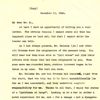
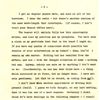
Following Germany’s invasion of the Soviet Union, the likelihood of a German invasion of Britain receded, relegating Ryan to a marginal status. He responded to the invasion of the USSR by emphasising the value of Irish neutrality to Germany and discouraging German attempts to draw Southern Ireland into the conflict.
In Document 9, a letter written by Ryan to Kerney after Germany's invasion of the Soviet Union, Ryan continues to insist that he is in Gemany as a 'non-party neutral' acting only in a 'consultative capacity'. However, he outlines several future scenarios to Kerney, including the possiblity that he might yet play a role as a liaison between the German and Irish governments (presumbably in the likelihood of a British invasion of Ireland).
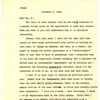
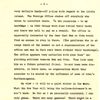
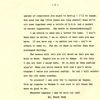
He also resisted attempts to draw him into closer collaboration. Although – as depicted in our film – he did agree to visit Irish prisoners-of-war in Friesack to vet them for a mooted ‘Irish Brigade’, he was not enthusiastic about this and several other ventures that he participated in during this period.
Although we depict Ryan making a series of recordings for Dr Hans Hartmann’s propaganda radio service as a framing narrative device for our film, Ryan initially turned down requests to broadcast propaganda to Ireland. He did, however, eventually agree to undertake translation work for the propaganda service, an example of the increasing pressure he came under in the final years of the war, and the compromises he was forced to make to ensure his survival there. His ill-health meant that he never joined Dr Hartmann’s radio service in Luxembourg.
‘inherently vulnerable reconstructions of the past, all-too-easily ‘pushed’; behind the curtain of invention or make believe’Mark McKenna |
DB Given the limited and problematic nature of sources on Ryan’s life in Berlin, the film-maker has to work with scant written or oral evidence of Ryan’s state of mind. In this context, the imaginative resources of film have to step in to reconstruct a sense of what Ryan may have been experiencing as his seriously compromised position as an erstwhile radical involved in various collaborative projects with the Nazi regime became clear to him.
It seems unlikely that Ryan, given his high-level contacts with military intelligence in Berlin, could not have been aware of the highly repressive nature of the regime he cooperated with and indeed of the existence of the Nazi system of repression including the concentration camp system, although he may not have been aware of the implementation of the ‘Final Solution’.
In any case I chose to make his enquiries to Clissmann (and later to Hartmann) about the camps the key dramatic encounters in a narrative of self-awareness and the documentary’s portrayal of his abject state at the end of his life. We can ask did Helmut Clissmann and Hartmann know of the existence of the camps? Interviews with these figures reveal nothing and indeed, as with many others who lived through this period in Germany, such interviews are as much about forgetting than remembering, exercises in legitimation rather than recall.
The portrayal of the relationship between Ryan and Hartmann is at the core of the film with the action narrated over a series of flashbacks by Ryan arising initially from Hartman’s interviews with Ryan in the latter’s apartment. The depiction of a series of interviews between Ryan and Hartmann is a conceit by the director (although Hartmann did encourage Ryan to participate in his broadcasting plans, and Ryan was an experienced journalist who had earlier provided detailed accounts of his activities in Spain for publication).
However, the recording sessions enable Ryan to be established as narrator of his own story within the diegesis of the film. I have experimented with the device of the unreliable narrator in a number of films since Hard Road to Klondike (1990) not because I have any interest in misleading the audience or mischievously eliding the boundary between fact and fiction but rather to signal the contingency of memory and the performative nature of all life writing whatever documentary claims are made for it. In addition I have been anxious to rescue the voice over from the opprobrium it has received within critical work on documentary form and to restore the vernacular voice over as part of the film-makers tool kit where it can play an expressive and reflexive role in addition to an exegetical one.
‘fiction is the repressed other of historical discourse’Michel de Certeau |